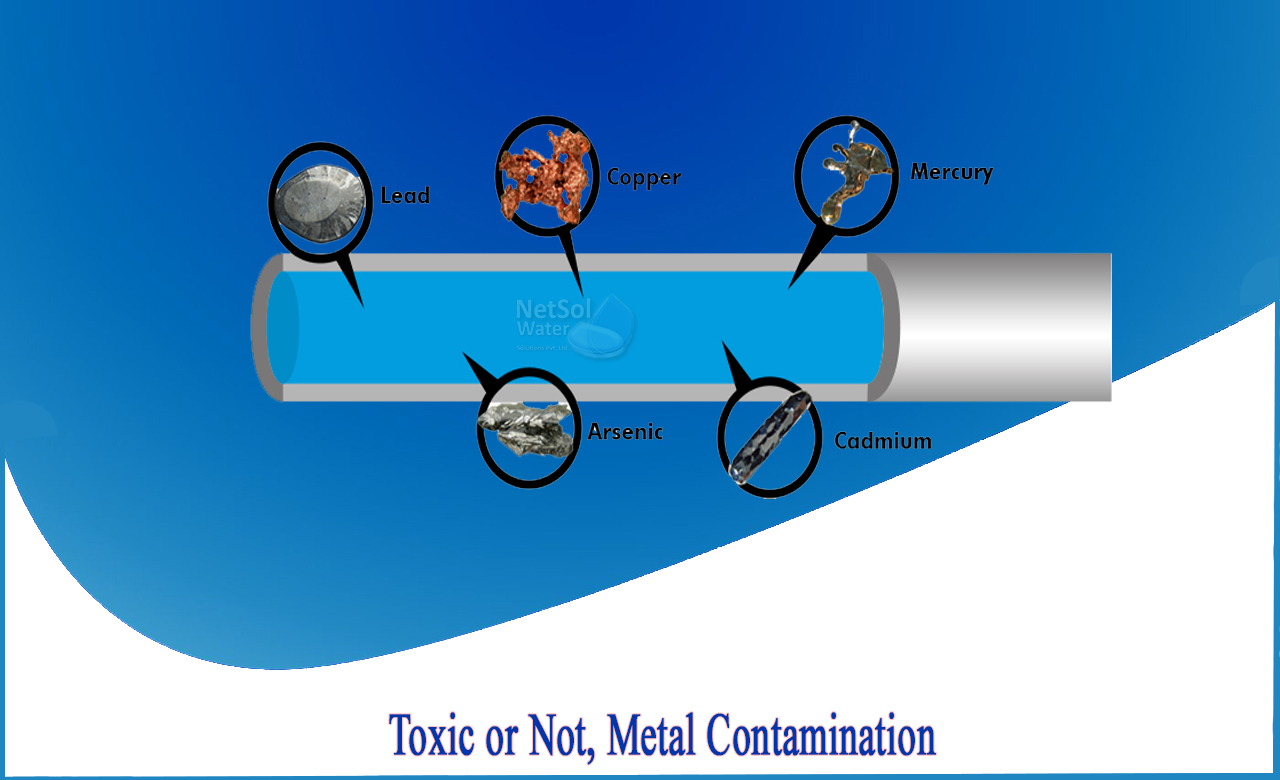What are Toxic Metal Contamination?
Most people do not realize that most elements are metals. Metals tend to be shiny, they make good conductors, and they're malleable and ductile. Most of them are corrosive when exposed to sea water or air, and lose electrons during reactions. We're familiar with metals, for example gold, silver, lead, zinc, chromium, cadmium, and mercury. It's obvious that other elements—beryllium, sodium, and lithium, for example—are of metallic nature. Moreover manmade metal objects surround us from everywhere; metals represent only a small proportion of the elements in the Earth's crust as per studies.
There is no precise definition of "heavy metals," but heavy metals generally are considered to be those metals which possess a high density. Gold, silver, tin, copper, zinc, and iron are most prominent examples of heavy metals. Some of the heavy metals as well, like iron and zinc, are essential nutrients at low concentrations but toxic (fatal) at high concentrations. Other non-essential heavy metals, like cadmium, mercury, and lead, are toxic even at relatively low concentrations and have been listed as hazardous.
Metals that are in water used for drinking and in sediment can be risky to human and aquatic health. Various concentration references have been developed by various public and private organizations that indicate the concentration above which a metal is a health concern.
TRACE ELEMENTS AND DRINKING WATER
Concentrations of trace elements are more likely to be a problem in groundwater than in surface water, unless the area is impacted by mining. That’s because when groundwater moves through the rocks and sediments that make up an aquifer, some of the minerals in or adhered to those rocks and sediment are released into the water. Groundwater which has been in an aquifer a long time has had more time to interact with aquifer materials than groundwater that has recharged recently.
Additionally, geochemical conditions, such as pH and redox, change as groundwater slowly moves along a flow path from recharge to discharge—those geochemical conditions can affect whether metals are released into the groundwater.
Metals reported to occur vastly at concentrations above drinking-water benchmarks in untreated groundwater from some aquifers include manganese and the metalloid arsenic. Various metals, like iron, might not be present at levels that are a health risk as per guidelines, but can be a nuisance by making water unpleasant to drink or by staining fixtures which are not acceptable. Levels of metals can be lowered through treatment of water at small or large scale. Water which is taken from public-supply wells is required to be tested by the well operator on a routine basis to help assure that the water provided to consumers meets Federal and State water-quality standards, which exist for most but not all metals. Routine quality check of water from domestic (private) wells is not required, and it is up to the homeowner or private-well owner to check, maintain, and treat the water from their subsurface source such that no compromise is made. The best way to know the water quality of a domestic well is to have it tested.
sIn areas impacted by mining, acid runoff dissolves heavy metals, such as copper, lead, and mercury, into groundwater or surface water. Acidic, metal-laden drainage from abandoned coal mines can have substantial effects on aquatic resources.
Netsol Water is Greater Noida-based leading water & wastewater treatment plant manufacturer. We are industry's most demanding company based on client review and work quality. We are known as best commercial RO plant manufacturer, industrial RO plant manufacturer, sewage treatment plant manufacturer, Water Softener Plant Manufacturers and effluent treatment plant manufacturers. Apart from this 24x7 customer support is our USP. Call on +91-9650608473, or write us at enquiry@netsolwater.com for any support, inquiry or product-purchase related query.



